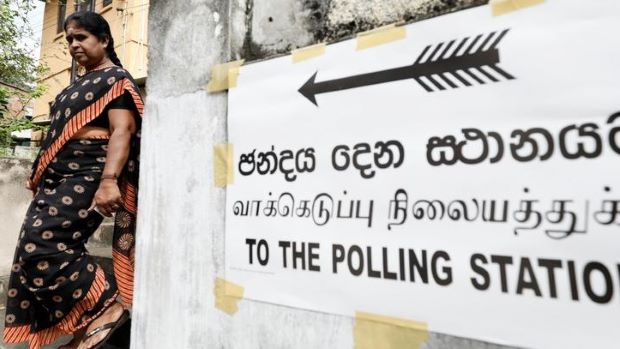COLOMBO – President Ranil Wickremesinghe has expanded the scope of a commission appointed to propose electoral reforms, also increasing its membership by one, amid concerns raised by some senior lawyers.
The commission, chaired by former Chief Justice Priyasath Dep, now comprises 10 members and is expected to obtain and submit information, investigate, inquire into and examine all existing election laws and regulations and make necessary recommendations for the amendment of election laws, according to a gazette notification issued on Thursday (2).
The announcement came in the wake of a statement by a group of high-profile lawyers in Sri Lanka that expressed “profound concern” about a gazette issued on October 16 announcing the creation of a nine-member commission appointed to propose electoral reforms, noting that, while reforms are imperative, there is an “apprehension” that the reforms might be intended to stall elections.
On Thursday, President Wickremesinghe issued a fresh gazette notification increasing the membership of the commission by one and expanding its powers. The commission is mandated to propose revisions to electoral laws that align with contemporary requirements and uphold the integrity of political parties.
According to the gazette, the commission comprises: Justice Wewage Priyasath Gerard dep esquire, PC – retired Chief Justice, Suntharam Arumainayaham, Senanayake Alisandaralage, Nalin Jayantha Abeysekara PC, Rajitha Naveen Christopher Senaratna Perera,Ahamed Lebbe Mohamed Saleem, Sagarica Delgoda, Sriyani Nimalka Fernando, Vitharanage Deepani Samantha Rodrigo and Alan Carmichael Vere David, who is the latest addition to the commission.
“The primary tasks of this commission encompass a thorough examination of existing election laws and the formulation of recommendations for their improvement. These recommendations extend to guidelines on the responsible utilization of media by political parties and independent groups,” the statement said.
The commission is also entrusted with gathering information, conducting investigations and delivering recommendations regarding the implementation of a code of conduct that governs the conduct of political parties, enhancing the regulations concerning party registration and ensuring their actions are transparent and accountable to the public.
Addressing several critical issues including augmenting the representation of women and youth in political processes, reducing the time between the announcement of an election and the release of results and exploring the possibility of electronic voting using modern technology as an alternative to traditional paper ballots are among the commission’s other tasks.
“Finally, the commission is called upon to provide recommendations related to the proposed constitution,” the president’s office said.
In recognition of the imperative to establish and uphold mutual trust between Sri Lankan voters and political parties, the statement said, various globally renowned organizations, including the Inter-Parliamentary Union, have diligently focused on delineating criteria for enhancing the transparency and accountability of political parties.
“This heightened scrutiny stems from the notable escalation in the financial expenses associated with election campaigns, encompassing elections. The role of financial resources in shaping political landscapes and the potential for undue influence on policy decisions have garnered considerable concern.
“Additionally, there has been a growing awareness of individuals with criminal backgrounds infiltrating political parties, supplanting stable political organizations with short-term political entities, consequently contributing to political instability. These issues have been of particular concern.”
The commission is expected to produce its report within a timeframe of six months, the president’s office added.
-economynext.com



Comments are closed, but trackbacks and pingbacks are open.